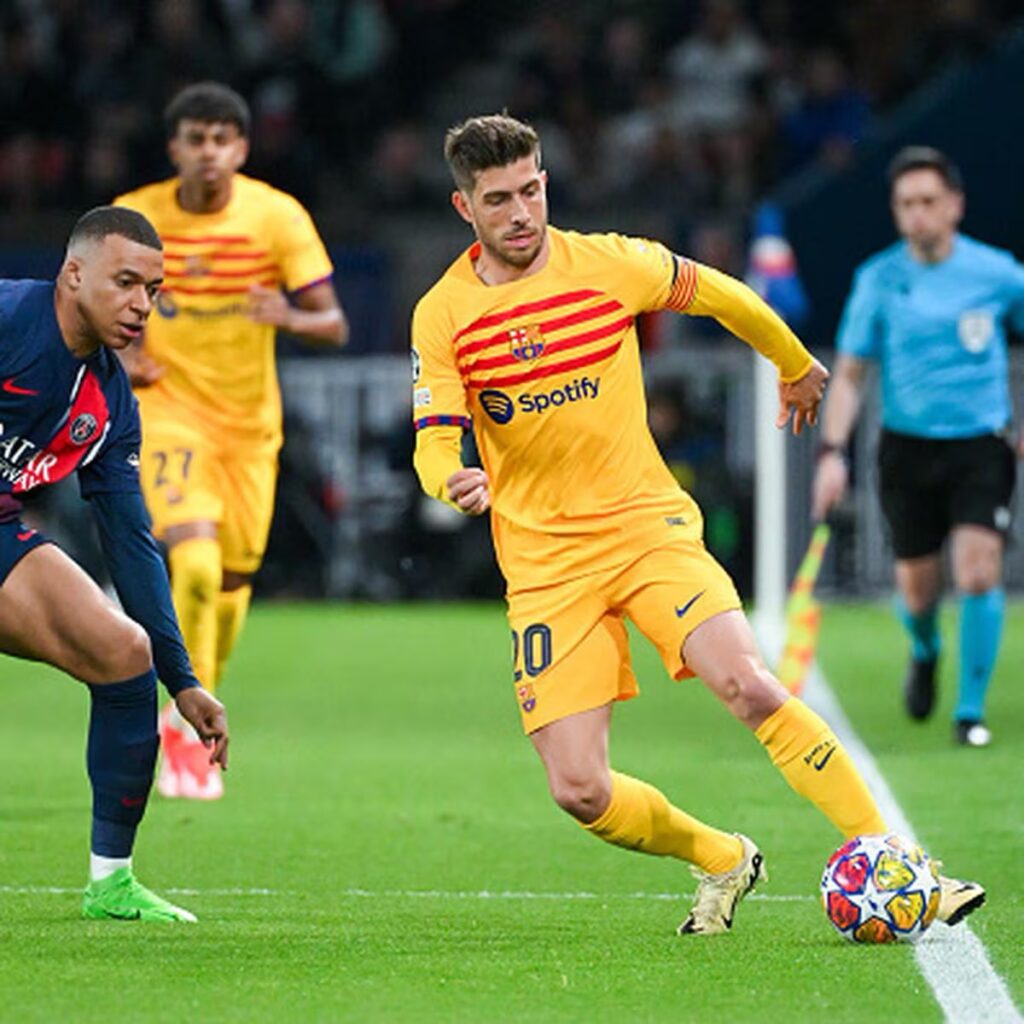Barcelona secured a crucial 3-2 away win against Paris Saint-Germain in the first leg of their quarter-final tie. The match saw momentum swing back and forth, with both teams making key substitutions that ultimately impacted the outcome.
UEFA Technical Observer Analyzes the Clash
UEFA’s Technical Observer for the match, former Barcelona player Giovanni van Bronckhorst, provided a detailed breakdown of the key factors that decided the encounter.
Raphinha and Lewandowski Spearhead Barca Attack
Van Bronckhorst highlighted the significant roles played by Barcelona’s attacking duo of Raphinha and Robert Lewandowski.
“Raphinha was the game’s decisive player,” stated Van Bronckhorst. “His high-speed movement and runs from deep behind the defence caused constant problems for the Paris backline.”
The former Barcelona defender pointed to a specific instance where Raphinha’s pace was crucial. “In the first goal,” he explained, “Lewandowski created space by collecting the ball deep and working it wide to Lamine Yamal. Although Donnarumma got a hand to the cross, Raphinha was there to calmly finish.”
Van Bronckhorst also praised Lewandowski’s ability to “pull away from the number nine position” to create space for Raphinha and other attacking midfielders like İlkay Gündogan.

Paris Responds with Tactical Tweaks
Despite Barcelona’s early dominance, Paris managed to fight back in the second half. Van Bronckhorst attributed this turnaround to key tactical changes implemented by manager Luis Enrique during the break.
“Luis Enrique took off Marco Asensio, who struggled to find his rhythm in the central attacking role, and brought on Bradley Barcola, a natural winger,” explained Van Bronckhorst. “This allowed Ousmane Dembélé to operate more infield, creating a greater threat in the central areas.”
The impact was immediate. “Dembélé, with his speed, could exploit the space behind the defence,” said Van Bronckhorst, referencing Dembélé’s equalizer against his former club just three minutes after the restart.
Barcelona Strikes Back with Timely Substitutions
While Paris looked to have regained control, Barcelona responded with effective substitutions of their own. UEFA’s analysis unit has highlighted the growing importance of substitutes this season, with many decisive goals coming from players introduced after the 75th minute. Barcelona’s win further emphasized this trend.
The introduction of Pedri in the 61st minute proved to be a game-changer. He brought composure and calm,” said Barcelona manager Xavi. “He sees everything, and the pass he played for Raphinha’s second goal was extraordinary.”
Raphinha’s equalizer, just one minute after Pedri entered the field, showcased the midfielder’s immediate impact. He received a pass from Gündogan, controlled it with one touch, and lifted a perfectly weighted ball over the Paris backline for Raphinha to volley home.
Xavi’s substitutions continued to pay dividends. The introduction of João Felix and Ferran Torres in the latter stages created further attacking options. It was from a corner won by these two substitutes that Andreas Christensen, another late introduction, rose highest to nod home the winning goal in the 77th minute.
Van Bronckhorst Commends Impact of Substitutions
“If you make substitutions, you want them to make the difference,” concluded Van Bronckhorst. “Both Pedri and Christensen did exactly that, with an assist and the winning goal respectively. These were definitely good substitutions from Xavi.”
Barcelona will take a narrow lead back to Camp Nou for the second leg on April 24th. However, with Paris showing their ability to fight back, the tie remains very much in the balance.



